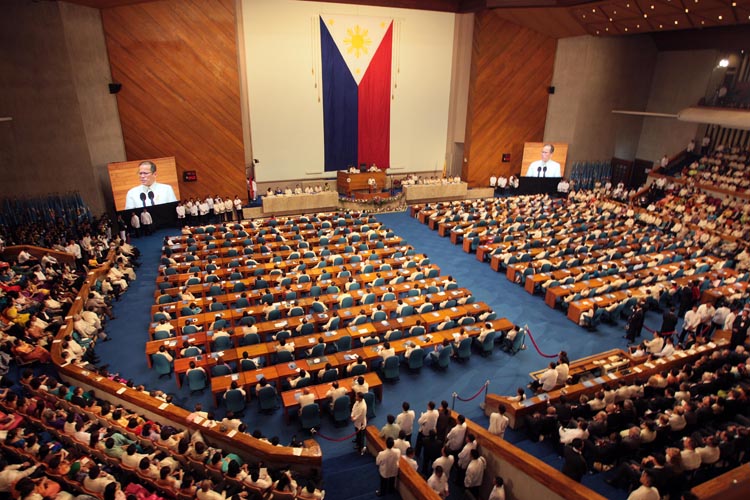Headline
Anti-dynasty bill still pending, up for third reading

Plenary Hall, House of Representatives Complex, Constitution Hills, Quezon City (Photo by: Robert Vinas/ Malacañang Photo Bureau)
MANILA – The House of Representatives would still have to examine further the anti-political dynasty bill, withholding its passage on its second reading.
The committee on suffrage and electoral reform would still have to make changes, specifically on the proposed restriction on political dynasties. A new version of the bill was expected to be presented when the House reconvenes next month.
Under the present version of the bill, only two family members were allowed to take elective positions at a same time period, prohibiting other kin from running in any national or local election.
However, the bill posed a problem starting at the House since at least 150 or more than half of the 290 representatives belonged to political dynasties.
Several congressmen then wanted the restriction on political dynasties to be relaxed and allowed more family members to occupy elective posts at the same time. They also argued that the restriction should not be applied to the entire country but only within the area of an incumbent’s influence.
The committee on suffrage and electoral reform chairman Capiz Representative Fredenil Castro was willing to consider the said concerns. He then sought for the opinions of Bayan Muna Representative Neri Colmenares and Caloocan Representative Edgar Erice, two of the authors of the original bill.
Colmenares, however, believed that easing the restriction of the anti-dynasty bill would ‘dilute the very essence of the law.’
“I noticed in the proposed committee amendments that succession is no longer prohibited. Additionally, dynasty prohibition will no longer apply if the ‘third’ relative runs for an elective post in another province, city, municipality or barangay (town),” he said, mentioning that under the original bill, only one family member was allowed to seek elective office.
“As of now, I fail to see a reasonable basis for the proposed amendments of our colleagues… A reasonable but strict regulation of political dynasties is necessary if we are to fully achieve our aim at electoral reform,” he added.
Erice agreed with Colmenares and acknowledged that the bill did pose a problem at the House.
“That is because the proposed dynasty ban covers the spouse, children, sisters and brothers, and grandchildren of an incumbent elective official, whether national or local. With at least 150 House members affected, we are facing a difficult battle,” he said.
Meanwhile, Senator Aquilino Pimentel III shrugged off reports that the anti-political dynasty bill was meant for the political clan of Vice President Jejomar Binay. He clarified that if it was intended for Binay’s family alone, the bill should have been approved a long time ago as the Binay’s had been in government office for decades already.





















